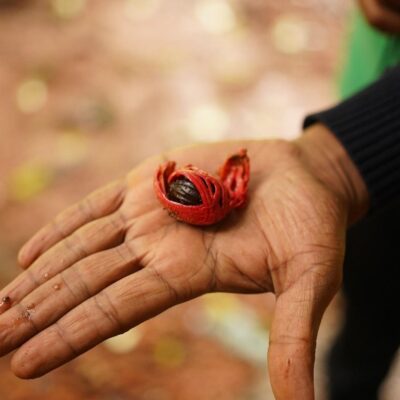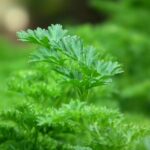No, dogs should not eat nutmeg because it contains the substance myristicin. When eaten in huge amounts, myristicin can have psychoactive effects and in dogs, it can even cause seizures. While dogs might be able able to eat food flavored with nutmeg, it is best to avoid giving the spice to the dog.

Caution: This food is generally considered risky by the veterinary community. Dogs should not eat this food and should be monitored for adverse effects.
| Food Safety | Harmful in large quantities. |
| Nutritional Issues | Nutmeg contains myristicin. When eaten in huge amounts, it can trigger a range of harmful symptoms in dogs. |
| Potential Risks | Health issues from nutmeg poisoning. |
| Symptoms | Dry mouth, disorientation, vomiting, tremors, lack of coordination. |
How Much Nutmeg is Bad for Dogs?
While your dog might be able to take a bite or two of nutmeg-flavored food without any problems, there is no set amount of the spice that can be declared safe for dogs. All amounts of nutmeg can be considered unsafe for dogs and if your dog ingests nay, be on the lookout for symptoms.
What Makes Nutmeg Unsafe?
Nutmeg contains a substance called myristicin, which has psychoactive effects in humans and can trigger severe health problems in dogs like seizures and high blood pressure.
What to Do if Your Dog Ate Too Much Nutmeg?
If your dog has eaten too much nutmeg, it is best to immediately contact your local veterinarian. The vet will decide on the best course of treatment and give your dog intravenous fluids or anti-emetics to stabilize it.
Frequently Asked Questions
-
While a small amount of nutmeg would not necessarily hurt your dog, it is best to avoid giving your dog any food that is flavored with nutmeg.
-
If your dog has tasted a bit of your drink, chances are it won’t cause too much of a problem. However, it is best to be vigilant and observe your dog closely for any symptoms over the next few hours.






